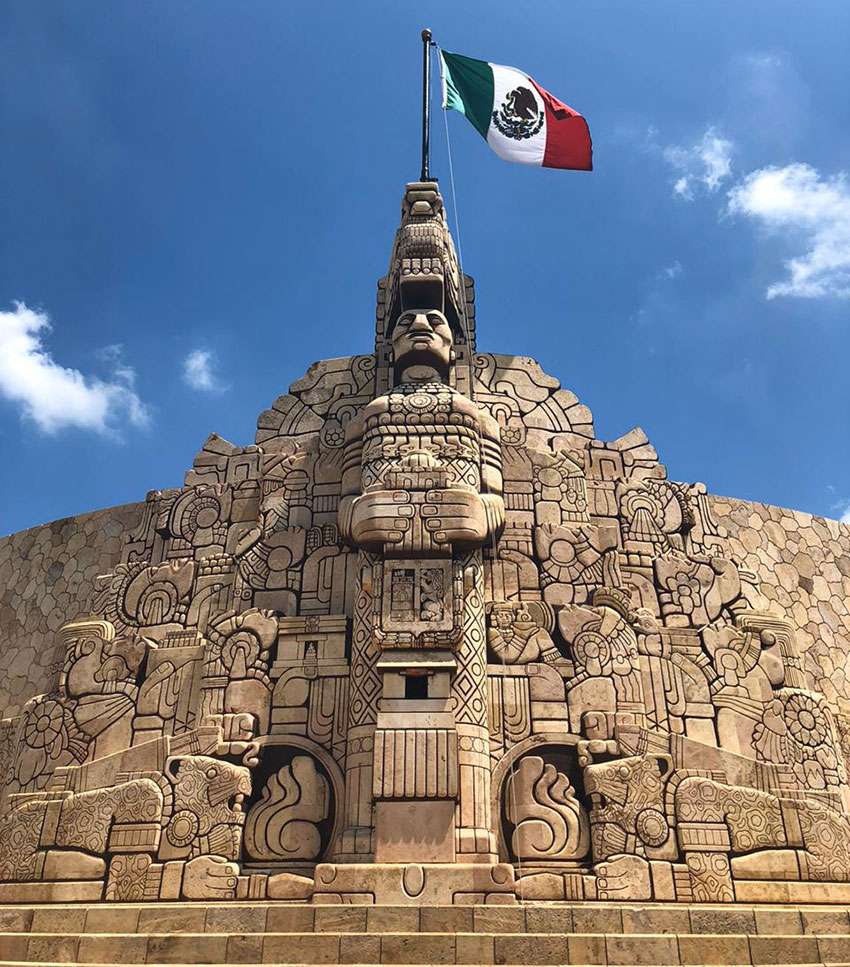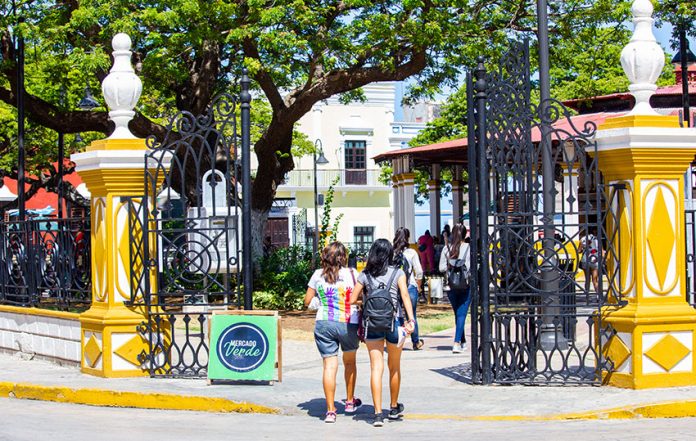The unquenchable thirst for rivalry between separate communities of humans is universal. We see it everywhere; it’s tribal, it’s global, it doesn’t discriminate. If two groups can find a way, they’ll tangle together and find something, anything, about which to feel superior.
Some may claim it’s a damning indictment of humanity, others that it can act as a beautiful exposé of humanity at its most petty. In controlled conditions, it can be magnificent to watch.
There is an exception, however, in the strange relationship between Campeche and Mérida. The battle to be the cultural capital of the Yucatán is fought under most residents’ respective radars. It can’t be seen in bitter sports rivalries, nor in the pendulum swing of politics, but instead in a quiet tension that eludes outsiders looking in, a struggle for the esteem of authenticity.
Something like this can only be seen in the unlikely, the semi-hidden. Perhaps the truth can be found in the recent history of its itinerant markets.
On any day in Mérida, you’ll wander through the old town and encounter vendors working the market selling meat, fish, vegetables for the locals, and on another pass you’ll encounter stalls selling fine art, hand-crafted furniture and clothing woven by the age-old methods — all perfect souvenirs for tourists passing through. The culture is encouraged and enabled by local governments, seen not only as economically beneficial but culturally enriching for the city, giving a name to an often forgotten stretch of Mexican soil.

In Campeche, the opposite is true. Local initiatives are hard fought, a constant tug-of-war between local lawmakers and emerging institutions and free of corruption. Nevertheless, such wrangling only serves to disenfranchise would-be entrepreneurs from the community, let alone those from further afield. Quite understandably it is upsetting to the majority of campechanos to watch a generally comparable city make strides it could imagine making if only the shackles of bureaucracy were broken.
One such example is the Mercado Verde, the latest victim of Campeche’s rejection of ambition. Up until this month, every Saturday and Sunday amazing artists, unique cooks and groundbreaking designers had descended on the famous Parque Principal to partake in the city’s first and only environmental and sustainable market. Over the years it had become an institution loved by the residents, fawned over by tourists and crucial to those that sell their homegrown produce.
But in line with a campaign that has seen numerous other initiatives quashed, the local council has been weaponizing its own bureaucracy to suffocate the market’s chances of continuing. As though aiming the gun at their own feet with abandon, Campeche authorities remain locked in an insular and protectionist ethos, a mindset that makes the much desired cultural spring a daily struggle, and a distant dream.
Carlos, just one of the creative characters from the market, sums the problem up succinctly: “We have the will, we have the means, but we do not have the trust.”
He continues, “with political protectionism around our necks, we simply can’t step ahead. This is all about who we want to be, but the authorities seem unwilling to allow us to step forward from who we were.”
This feeling of being left behind is one that others agree with. Mérida is growing, fast, but not only in an economic context. As its sphere of influence spreads, its claim to be the cultural capital of the Yucatán Peninsula gains clout amongst those who only have the time to cast an eye over the southeast.
The frustration of being restrained by officials and inhibited from achieving growth akin to Mérida often leads to resentment. Seen from Campeche, Mérida is viewed as being obsessed with economic development, leveraging its economy away from the traditional, localized mindset of Campeche, toward a more outward-looking, imported culture.
It is an ideal born of vanity, so says Campeche, not really being empowered by its Mayan heritage, historical sites or diverse markets, but instead being proud of the titles themselves. A cursory look at the development statistics for the two states echoes this narrative — Campeche nearly always at the bottom of the charts for economic growth nationally and Mérida one of the most consistent drivers of growth, year on year, for the last 20 years.
Campeche may have a point. It should be a worry to the yucatecos that their relentless emergence and expansion is perhaps unsustainable, not necessarily in economic terms, but in relation to the preservation of cultural integrity. In completely opening up the doors to commercialization, Mérida may end up losing something it can’t buy back: its identity.
Notwithstanding, culture and creativity are allowed to thrive in Mérida, enabled through a shared laissez-faire philosophy between locals and authorities that energizes the city but at the same time fetishizes perpetual growth. Campeche is a little way off from Mérida’s level of influence but should be wary of wanting to replicate its system entirely.
José Cauich, a civil servant from Campeche, summarizes this perspective when stating that the yucatecos are so commercially minded that they have even appropriated the extinction of the dinosaurs to leverage more tourist dollars. He was referring to the meteorite strike that led to this outcome and which now has Mérida touting itself as the city center closest to the “event,” although quite how you visit an offshore, underwater, unconfirmed event is open to interpretation. The perverse fixation on the implication of a commodity and not the subject itself may pose problems for Mérida down the line.
So it seems there needs to be a happy medium, and both cities could actually learn something from the other. Somewhere between walled Campeche and porous Mérida lies a self-evident truth: that a middle way is possible. As things stand, the tension between these extremes leaves us with a rivalry that polarizes ambition, ignoring the possibility of ideological compromise.
If Campeche can negotiate its unique political landscape and look beyond itself, then it must remain mindful of the over-commercialization that beckons from afar. As for the rivalry, perceptions remain in the driver’s seat in this tale of two cities.
Writer Jack Gooderidge is based in Campeche.
